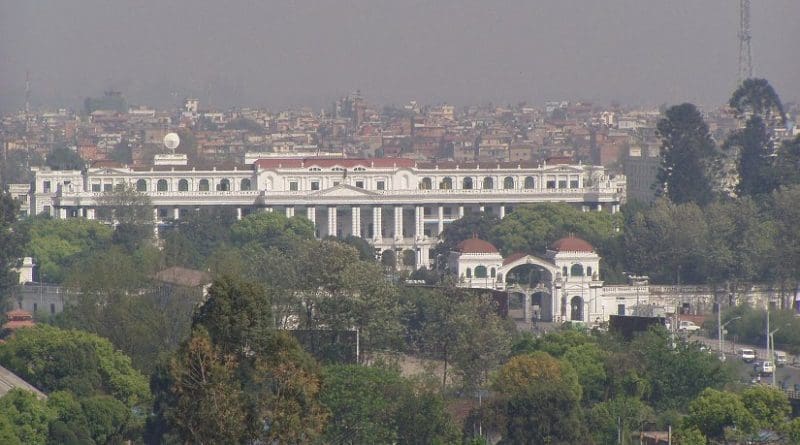Nepal: Drop Sedition Charges Against Madhesi Activist, Says HRW
The Nepal authorities should immediately withdraw sedition charges and unconditionally release rights campaigner Chandra Kant Raut, who was arrested for his expression of peaceful political opinions. Nepal should amend its practices to comply with international and domestic standards to protect freedom of expression.
Raut was arrested on September 14, 2014, for allegedly advocating that the southern plains of Nepal, known as the Terai, be allowed to secede from the rest of the country as part of a long-standing debate on state restructuring. On October 8 he was charged with sedition, presumably under the Crime against State and Punishment Act 1989, which forbids any “attempts to cause any disorder with an intention to jeopardise sovereignty, integrity or national unity of Nepal.” It carries a penalty of life imprisonment. Police also said that Raut has written articles and books advocating secession by Madhesis, the Terai community. There is no evidence that Raut advocated the use of violence, or that his actions led to violence.
“Many Nepalis have recently struggled to break out of feudal structures and ensure democratic rights,” said Brad Adams, Asia director at Human Rights Watch. “Freedom of expression is a cornerstone of a good democracy. But the government is going after an activist expressing concerns about marginalized communities from the Terai.”
Nepali politicians have long been drawn largely from the upper-caste hill tribes. Following the ceasefire agreement of 2006 after a 10-year civil war, the country embarked on a constitution-writing process which promised inclusion for traditionally marginalized communities, including from the Terai. Central to the promise of inclusion was the pledge to re-draw the state to create provinces or regions without giving dominance to the upper-caste hill tribes. However, the constitution remains in limbo as political parties have failed to come to a consensus.
The debate has been filled with anxiety that the Terai, which runs east to west along Nepal’s porous border with India and is a critical transit for trade in the land-locked country, will seek greater autonomy. Raut, formerly a US resident, returned to Nepal in 2011, and leads a group that seeks to establish an independent Madhesh in the area.
“Raut’s call for an independent Terai has to be understood in the historical and political context in which the discussion on state restructuring is occurring,” said Adams. “His arrest threatens the chances of a robust debate on federalism, and undermines the promise of inclusion. Raut’s arrest shows that minority voices can and will be easily sidelined.”
Nepal is a state party signatory to the International Covenant on Civil and Political Rights, which guarantees the right to free expression. Any limits placed on free expression must be set out clearly in domestic law, be nondiscriminatory in impact and must be strictly necessary for national security or public order. The authorities have not produced any evidence that Raut’s peaceful call for an independent Terai was a threat to national security or public order that could justify his arrest.
“Instead of releasing Raut for lack of a genuine threat, the authorities decided to justify their arrest by slapping sedition laws against him, nearly a month later,” said Adams. “Such laws are typically used by repressive regimes to control critical speech, and it appears that Nepal has decided to go down this unseemly route.”

